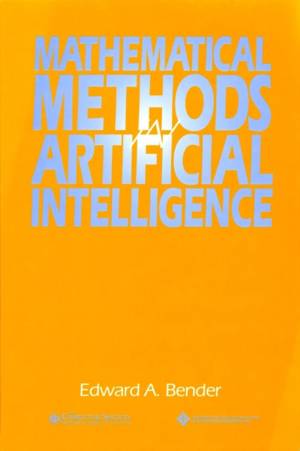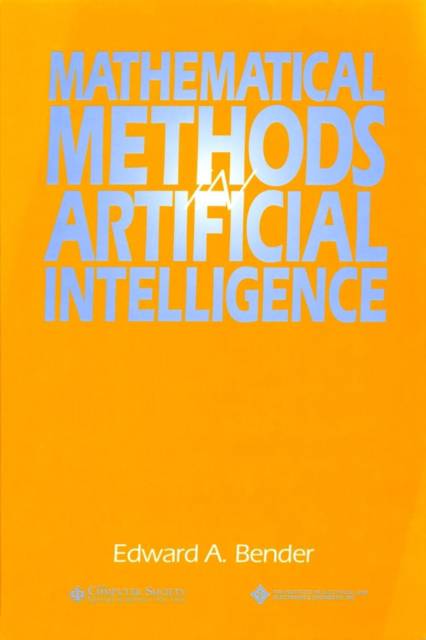
- Retrait gratuit dans votre magasin Club
- 7.000.000 titres dans notre catalogue
- Payer en toute sécurité
- Toujours un magasin près de chez vous
- Retrait gratuit dans votre magasin Club
- 7.000.0000 titres dans notre catalogue
- Payer en toute sécurité
- Toujours un magasin près de chez vous
Description
Mathematical Methods in Artificial Intelligence introduces the student to the important mathematical foundations and tools in AI and describes their applications to the design of AI algorithms. This useful text presents an introductory AI course based on the most important mathematics and its applications. It focuses on important topics that are proven useful in AI and involve the most broadly applicable mathematics.
The book explores AI from three different viewpoints: goals, methods or tools, and achievements and failures. Its goals of reasoning, planning, learning, or language understanding and use are centered around the expert system idea. The tools of AI are presented in terms of what can be incorporated in the data structures. The book looks into the concepts and tools of limited structure, mathematical logic, logic-like representation, numerical information, and nonsymbolic structures.
The text emphasizes the main mathematical tools for representing and manipulating knowledge symbolically. These are various forms of logic for qualitative knowledge, and probability and related concepts for quantitative knowledge. The main tools for manipulating knowledge nonsymbolically, as neural nets, are optimization methods and statistics. This material is covered in the text by topics such as trees and search, classical mathematical logic, and uncertainty and reasoning. A solutions diskette is available, please call for more information.
The book explores AI from three different viewpoints: goals, methods or tools, and achievements and failures. Its goals of reasoning, planning, learning, or language understanding and use are centered around the expert system idea. The tools of AI are presented in terms of what can be incorporated in the data structures. The book looks into the concepts and tools of limited structure, mathematical logic, logic-like representation, numerical information, and nonsymbolic structures.
The text emphasizes the main mathematical tools for representing and manipulating knowledge symbolically. These are various forms of logic for qualitative knowledge, and probability and related concepts for quantitative knowledge. The main tools for manipulating knowledge nonsymbolically, as neural nets, are optimization methods and statistics. This material is covered in the text by topics such as trees and search, classical mathematical logic, and uncertainty and reasoning. A solutions diskette is available, please call for more information.
Spécifications
Parties prenantes
- Auteur(s) :
- Editeur:
Contenu
- Nombre de pages :
- 668
- Langue:
- Anglais
- Collection :
- Tome:
- n° 50
Caractéristiques
- EAN:
- 9780818672002
- Date de parution :
- 10-02-96
- Format:
- Livre broché
- Format numérique:
- Trade paperback (VS)
- Dimensions :
- 186 mm x 247 mm
- Poids :
- 1161 g

Les avis
Nous publions uniquement les avis qui respectent les conditions requises. Consultez nos conditions pour les avis.






